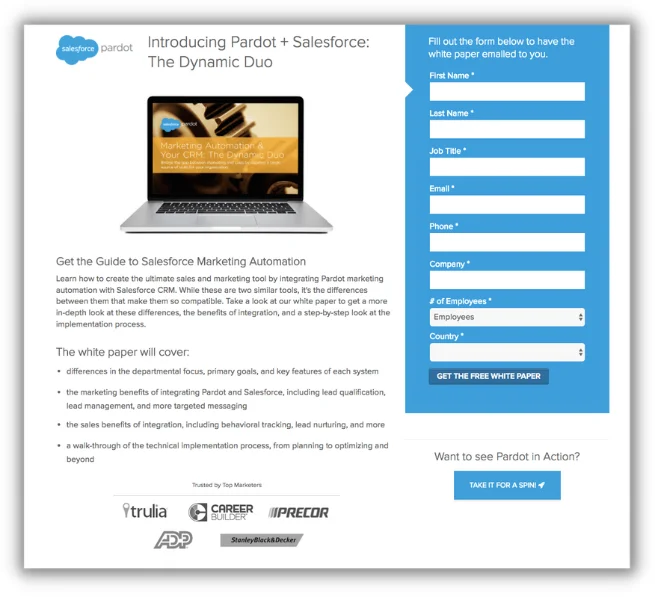20 Free Facts For Choosing Email List Sellers
Wiki Article
What Should I Think About Prior To Purchasing An Cpa Email List?
Consider the following aspects before buying an email list of CPAs (Certified Public Accountants):1. The list needs to meet all legal requirements, and be relevant to the marketing objectives. There are a few things to consider: Data quality and accuracy
Verify where the data is sourced From. Trustworthy companies typically get their data from legitimate sources such as trade associations or directories. Avoid lists generated by scraping data or using methods that are not reliable, since they could contain inaccurate and outdated information.
Verification Process: Ensure that the email list is valid and has been updated recently. This can reduce bounce rates and makes sure you are reaching active, valid email addresses. As CPAs frequently change firms or jobs, you should ask how often the list has been updated.
Segmentation/Filters Filters and Segmentation: A CPA List should be able to be segmented by geography (city or province and country) and areas of specialization (e.g. accounting, auditing or financial planning) as well as the years in operation, or the size of the firm. Your campaigns can be more relevant by using targeted advertising.
2. Legal Regulations
Data Privacy Laws: Ensure that the email list is compliant with the laws on data protection such as the General Data Protection Regulation (GDPR) as well as the California Consumer Privacy Act (CCPA) and any other applicable local regulations. Lists should contain email addresses that have been obtained legally, with proper consent.
Conformity with the CANSPAM Act In order to comply with the CANSPAM Act, which governs commercial emails, it is important that the email list adheres to the CANSPAM Act. The list should contain opt-out procedures and avoid misleading content or subject line. Non-compliance is punishable by fines and other legal concerns.
Opt-In Consent: Check that email addresses have been obtained through opt-in consent, where recipients have agreed to receive email from third-party marketers. This decreases the chance of spam complaints while increasing engagement.
3. Provider Reputation
Conduct a thorough investigation into the credibility of a company. Check out reviews, testimonials as well as case studies to see what other clients think. Established providers with proven record of success are more likely to offer accurate, high-quality data.
Transparency. The provider must make it clear how and when the data is changed. This is a warning signal when a provider doesn't describe their method in a clear manner.
Customer Support: Reliable customer support is crucial if you need help in modifying your list and troubleshooting or the compliance requirements. Support that is efficient can cut down time and effort in the course of your campaign.
4. Cost and Return on Investment
Pricing Models. The providers offer a variety of pricing models. Some charge per contact, while others offer flat fees or a subscription. Examine the costs in relation to the expected ROI, balancing price with the quality of the service.
Refund Policy: Ask whether the company has a refund or replacement policy for the event that a significant amount of email addresses are incorrect or are invalid. A guarantee could provide you with peace of mind.
Price vs. value: Don't just look at the price. The cost of a list might seem attractive however it could result in low participation or high bounces in the event that its quality is poor. Choose lists that offer value in terms of precision and segmentation.
5. Data Ownership and Usage
Is it a single-use or multiple-use? Find out whether you're purchasing the list to use once or if the list is yours and you can use it in ongoing campaigns. Owning a list is more flexible for long-term campaigns even though single-use lists are less expensive.
Exclusive vs. Shared Lists - Find out if you are the only purchaser of an email list, or when multiple buyers share it. Shared email lists may result in audience fatigue when recipients receive a flood of emails from other companies.
6. Data Integration and Format
CRM Compatibility. Make sure the list was provided in the format of a CSV or Excel format. This makes it easy to manage data management and import.
Usability: Check how easy the data can divided and managed after the integration with your system. A well-organized list can to make targeting and personalization more effective.
7. Ethical Concerns
Relevance of the content CPAs are often busy professionals. Therefore, it's important to send them relevant and value-driven content. Sending irrelevant messages may affect your brand's image or increase spam complaints.
Avoid Over-Emailing. Be aware of the frequency at which you email contacts from the list. The excessive frequency of communication could result in spam complaints and unsubscribes. This can adversely affect the reputation of the person who sent it.
Conclusion
When you purchase a CPA email list, you should consider the quality of data as well as legal compliance and the reputation of the service provider to ensure that your investment is worth it. Proper segmentation, ethical practices, and targeting will help to maximize engagement and increase ROI while maintaining the image of your brand. Have a look at the top rated cpa email list for website advice.

If You're Looking To Purchase An Oil Industry-Related Email Database, There Are 10 Important Points To Be Aware Of.
If you're looking to buy an oil-related email database, there are several factors to take into consideration to make sure the list is in compliance and of good quality. Here are the top 10 important things to look at.
1. Relevance of the target audience
Ensure that the email list is targeted at the oil and natural gas industry. List professionals in the industry of oil and gas, including geologists, engineers, operations managers, decision-makers as well as upstream, midstream and downstream operators. part of a well-organized mailing lists.
Job Titles and Roles Find a list that contains the decision-makers who are relevant in your company of choice (executives/managers/engineers etc.). The companies you are targeting will have a list of the best decision-makers (executives, managers, engineers and others.).
2. Check out the sources listed and reviews of vendors.
Reputable Providers - Only purchase email lists from companies that are reputable, trusted and follow best practices when collecting data. Avoid sources that are of uncertain origin, since they may result in poor quality data, or even legal issues.
Data Quality: Testimonials or reviews are used to determine the credibility and quality of the list.
3. Accuracy of data and freshness
Data Age: This list should contain the most recent contact information. Oil and gas companies frequently undergo staff changes. Contacts that are older could result in a higher bounce rate.
Verification Process: Ensure that your vendor is updated and frequently examines their contacts list to identify those that aren't responding or have incorrect information.
4. Compliance with Regulations
Legal Compliance - Make sure the list is compliant with all local and international laws, including GDPR, CANSPAM and CANSPAM. which regulate the storage and use of personal data. Non-compliance might lead to criminal penalties and risk.
Opt-in Process: Check whether the email address on the list was collected with the permission of the recipients, i.e. they've chosen to receive messages.
5. Segmentation & Customization
Custom Segmentation: A reputable list service should offer segments based on certain factors such as location, job role, company size, or sub-sectors within the oil and gas industry.
Custom Filters. Based on your campaign's goals, ensure that the list is customizable in accordance with criteria for example, location, size, or special needs.
6. Rate of Deliverability
High Rates of Deliverability A high-quality list of email addresses will come with high levels of deliverability (normally 95 percent). Bounce rates on poor quality email lists may be high, which can harm your reputation and marketing efforts.
Testing and Metrics: Request the vendor for metrics of deliverability or historical performance to evaluate the effectiveness of the list.
7. Volume Vs.
Quality Over Quantity: Make sure your list is not just large in size, but precise and specifically targeted. A smaller but high-quality mailing list can be more effective than one that's big and generic.
Engagement Metrics Prioritize Engagement Rates over Contact Numbers. An engaged audience will respond better to your campaign.
8. Cost structure and pricing
Transparent pricing: Find out the cost of the list. Are you making a one-time purchase or are you paying per month? Beware of lists that are unusually low-priced, as these aren't necessarily of the highest quality or provide any value.
Return on Investment (ROI) You should consider the potential ROI by comparing the cost of the list with the expected conversion rates. It's sometimes cheaper to pay a higher price for a list with an excellent conversion rate.
9. Privacy and Data Security
Data Protection: Check to ensure that the vendor is using strong security practices. List providers should make sure that personal data is protected against unauthorised access.
Confidentiality. Make sure that the service does not intend to transfer or sell your personal information. Especially if your company requires discretion and confidentially.
10. After-sales Customer Support
Support Continually The vendor should provide customer support in case you encounter issues with the list, or require assistance with implementation.
List Replacement Warranty: A reputable service will either replace or refund the list if there are problems (e.g. wrong information or inadequate delivery).
When you consider these aspects, you can ensure you're purchasing an email database that's efficient, legal, and aligned with your business goals in the field of oil and gas. See the recommended for site guide.
